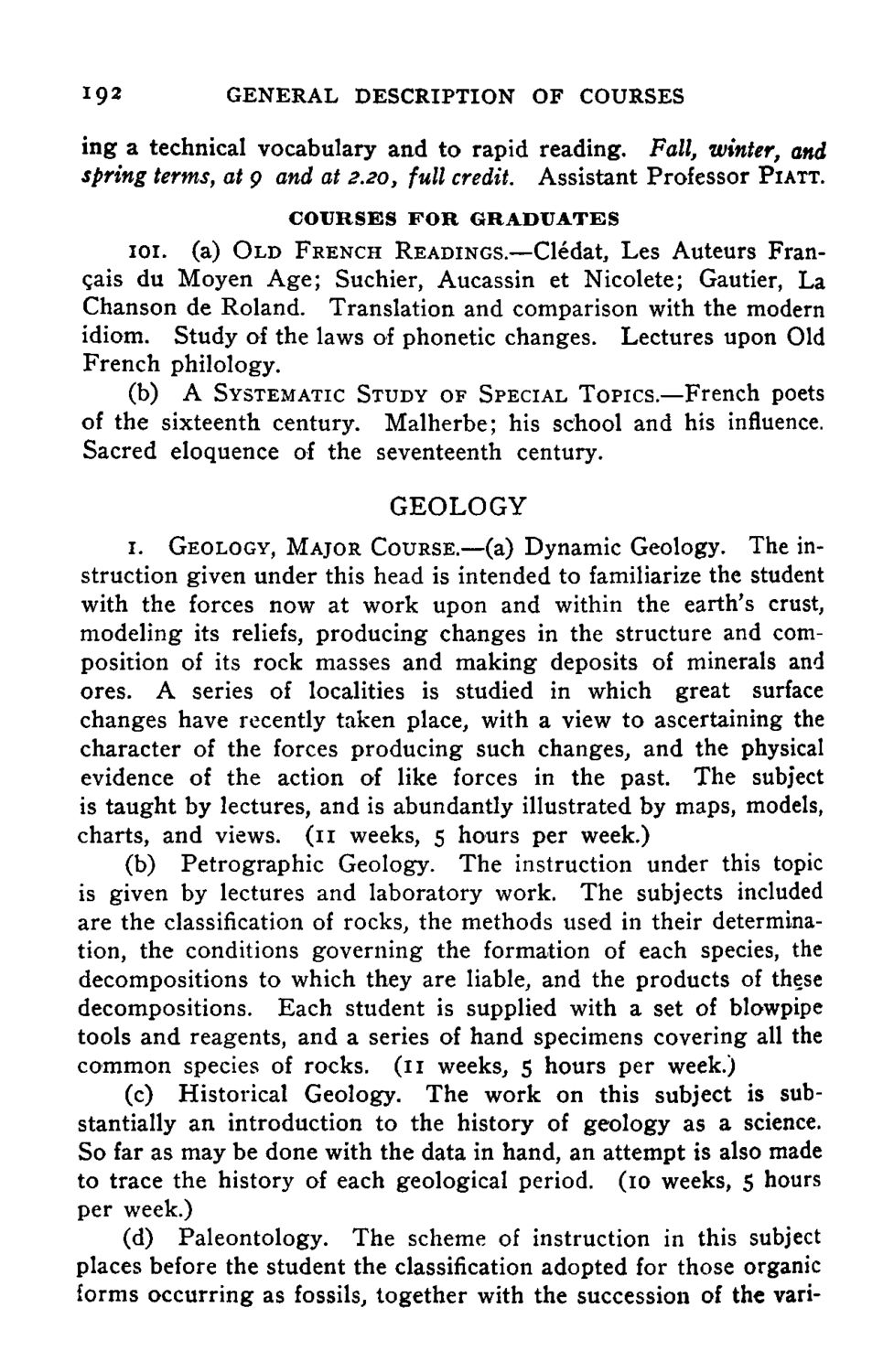| |
| |
Caption: Course Catalog - 1897-1898
This is a reduced-resolution page image for fast online browsing.

EXTRACTED TEXT FROM PAGE:
I92 GENERAL DESCRIPTION OF COURSES ing a technical vocabulary and to rapid reading. Fall, winter, and spring terms, at 9 and at 2.20, full credit. Assistant Professor PIATT. 101. COURSES FOR GRADUATES (a) OLD FRENCH READINGS.—Cledat, Les Auteurs Fran- cois du Moyen Age; Suchier, Aucassin et Nicolete; Gautier, La Chanson de Roland. Translation and comparison with the modern idiom. Study of the laws of phonetic changes. Lectures upon Old French philology. (b) A SYSTEMATIC STUDY OF SPECIAL TOPICS.—French poets of the sixteenth century. Malherbe; his school and his influence. Sacred eloquence of the seventeenth century. GEOLOGY 1. GEOLOGY, MAJOR COURSE.—(a) Dynamic Geology. The in- struction given under this head is intended to familiarize the student with the forces now at work upon and within the earth's crust, modeling its reliefs, producing changes in the structure and composition of its rock masses and making deposits of minerals and ores. A series of localities is studied in which great surface changes have recently taken place, with a view to ascertaining the character of the forces producing such changes, and the physical evidence of the action of like forces in the past. The subject is taught by lectures, and is abundantly illustrated by maps, models, charts, and views. (11 weeks, 5 hours per week.) (b) Petrographic Geology. The instruction under this topic is given by lectures and laboratory work. The subjects included are the classification of rocks, the methods used in their determination, the conditions governing the formation of each species, the decompositions to which they are liable, and the products of these decompositions. Each student is supplied with a set of blowpipe tools and reagents, and a series of hand specimens covering all the common species of rocks. (11 weeks, 5 hours per week.) (c) Historical Geology. The work on this subject is substantially an introduction to the history of geology as a science. So far as may be done with the data in hand, an attempt is also made to trace the history of each geological period. (10 weeks, 5 hours per week.) (d) Paleontology. The scheme of instruction in this subject places before the student the classification adopted for those organic forms occurring as fossils, together with the succession of the vari-
| |